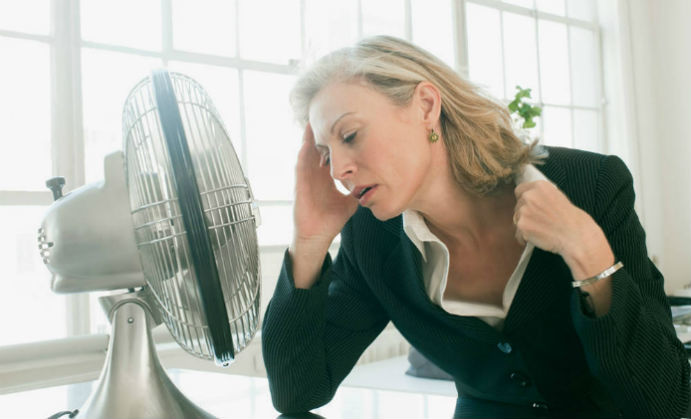The transition to menopause is known as Perimenopause. This is a phase which women go through years before menopause even begins. In this stage, the estrogen produced in the ovaries begin to reduce. It generally occurs in women in their 40s. However, there are few women who go through this phase even during the 30s.
Perimenopause persists till the ovaries completely stop releasing eggs. That is when menopause actually begins. During the final stage of Perimenopause, the estrogen level drops considerably. This sudden drop in the level of estrogen in the body is the core cause for the symptoms of menopause to occur. Generally, menopause lasts for approximately four years, however, some women might experience this for only a few months. On the other hand, it may also persist up to ten years in some women. After 12 months of a break in the menstrual cycle, the Perimenopause phase is completed and menopause is reached.
Symptoms that occur during Perimenopause
Following are few of the common symptoms during Perimenopause:
- Irregular periods
- Hot flashes
- Mood swings
- Breasts become tender
- Sex drive is reduced
- Difficulty sleeping
- Fatigue
- Leaking of urine while coughing or sneezing
- Urinating more frequently
- Vaginal dryness
Though, it is by nature that irregular periods occur during Perimenopause, other medical complications may also be the cause for the irregularity.
In case, you notice that your period continues for longer than the usual, for instance, if it is heavier or if it is occurring more frequently or if you see spotting, immediately contact your doctor to discuss the issue and have yourself checked.

However, you must talk to your doctor about if you could try natural methods like having a healthy diet, exercising your body or through vitamin supplements.
Ensure to consult your doctor before you start following any of the treatments for menopause. Based on your health conditions, they will guide you on what suits your body the best and give you better suggestions.
Do you want to find an effective Menopause treatment? Check out our top rated Menopause products












